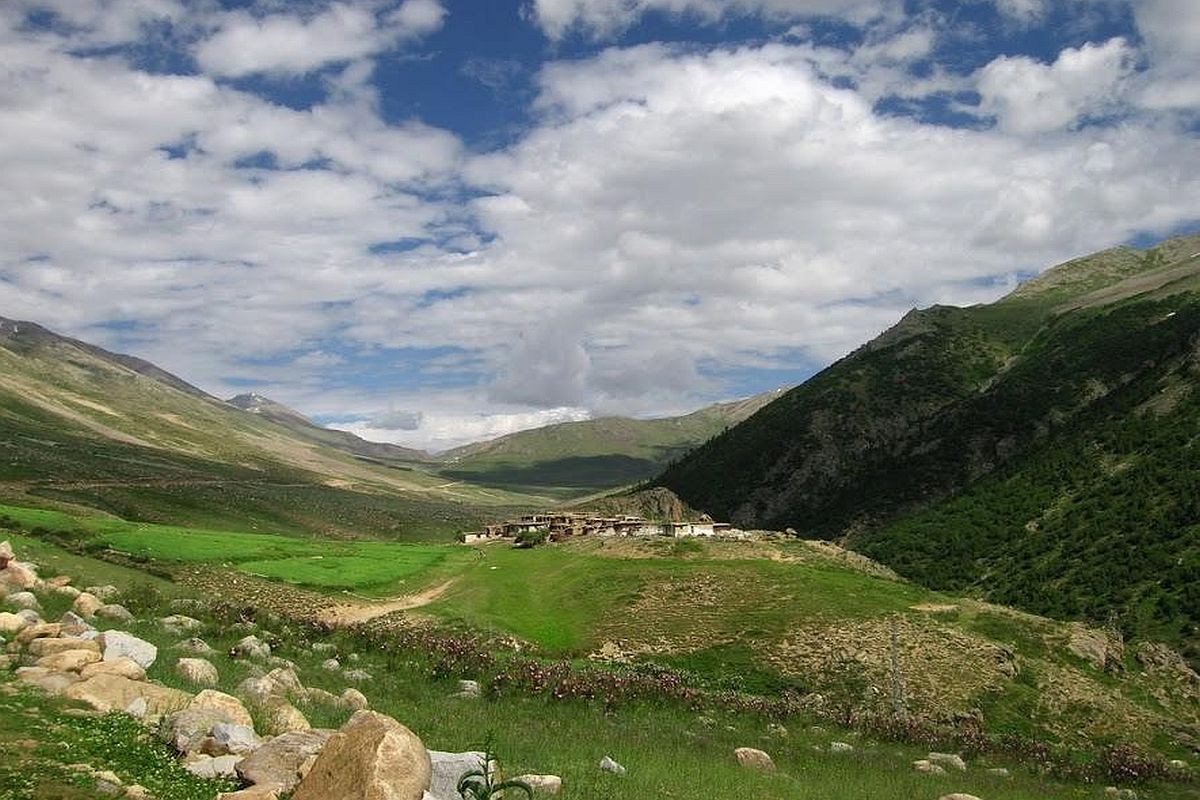UN chief urges efforts to end crisis in Congo
UN Secretary-General Antonio Guterres has called for more efforts to end the crisis in the eastern Democratic Republic of the Congo (DRC).
The UN Working Group on Enforced or Involuntary Disappearances has received at least one case of a Pakistani national, who disappeared from PoK, and a permanent resident of Gilgit-Baltistan, who disappeared from Pakistan.

Astore Valley Gilgit-Baltistan. (Photo: IANS)
The human rights violations in Pakistan-Occupied Kashmir are of a different magnitude and of a more structural nature than those in Indian-Administered Kashmir, a report by the Office of the UN High Commissioner for Human Rights (OHCHR) said.
The Office of the UN High Commissioner for Human Rights (OHCHR), commonly known as the Office of the High Commissioner for Human Rights, has made several recommendations to the Pakistani authorities to address these violations.
Advertisement
In its response to observations made by the OHCHR in its June 2018 report, the Government of Pakistan maintained that the constitutional and legal structures in Pakistan-Occupied Kashmir and Gilgit-Baltistan adequately protect the rights of its citizens.
Advertisement
However, the OHCHR’s monitoring and analysis found that these concerns remain. Both the regions introduced constitutional changes but failed to address the main problems that restrict enjoyment of full human rights by the people living there.
The OHCHR report claimed it had credible information of enforced disappearances of people from Pakistan-Occupied Kashmir, including those who were held in secret detention and those whose fate and whereabouts continue to remain unknown.
The people subjected to enforced or involuntary disappearances included men working with Pakistani security forces or those who were allegedly previously associated with armed groups that operate in Indian-Administered Kashmir. Some cases of alleged enforced disappearances have also been reported from areas close to the Line of Control that are under the control of the Pakistani armed forces.
In almost all cases brought to the OHCHR’s attention, victim groups alleged that the Pakistani intelligence agencies were responsible for the disappearances. There are fears that people subjected to enforced disappearances from Pakistan-Occupied Kashmir may have been detained in any of the military-run internment centres in Pakistan.
The Human Rights Committee has stated that although the International Covenant on Civil and Political Rights (ICCPR) does not explicitly use the term “enforced disappearance”, the word refers to a unique and integrated series of acts that represent continuing violation of various rights recognised in the Covenant, including right to life and the prohibition of torture or cruel, inhuman or degrading treatment or punishment.
In April 2017, the Committee against Torture expressed concern at “very broad powers given to the Army to detain people suspected of involvement in terrorist activities without charge or judicial supervision in internment centres under the Actions (in Aid of Civil Power) Regulation, 2011 (Articles 2 and 15).”
The Committee also expressed concern at the “allegedly high number of persons held in secret detention under the Actions (in Aid of Civil Power) Regulation, 2011)”.
It recommended Pakistan “repeal or amend the Actions (in Aid of Civil Power) Regulation, 2011 in order to remove the power of the military to establish internment centres” and “ensure that no one is held in secret or incommunicado detention anywhere in the territory of the State, as detaining individuals in such conditions constitutes per se a violation of the Convention.”
The Committee welcomed the establishment of Pakistan’s Commission of Inquiry on Enforced Disappearances and expressed concerns about “the insufficient power and resources allocated to the Commission; the non-compliance with the Commission’s orders by the relevant authorities; and the high number of cases brought before the Commission that remain unresolved, with no criminal proceedings brought against perpetrators (Articles 2, 6, 7, 9, 14 and 16).”
In May 2018, the Government of Pakistan had advised the Supreme Court of Pakistan that people were being held in various internment camps and that it required more time to furnish the Court with details of the legal proceedings against them.
The OHCHR has been informed that there are several other cases of enforced or involuntary disappearances in Pakistan-Occupied Kashmir, but they do not get reported due to the lack of independent media or independent human rights groups working in these areas.
The UN Working Group on Enforced or Involuntary Disappearances has received at least one case of a Pakistani national, who disappeared from Pakistan Occupied Kashmir, and a permanent resident of Gilgit-Baltistan, who disappeared from Pakistan, the OHCHR report said.
The OHCHR is a department of the Secretariat of the UN that works to promote and protect the human rights that are guaranteed under international law and stipulated in the Universal Declaration of Human Rights of 1948.
The office was established by the UN General Assembly on December 20, 1993, in the wake of the 1993 World Conference on Human Right.
Advertisement